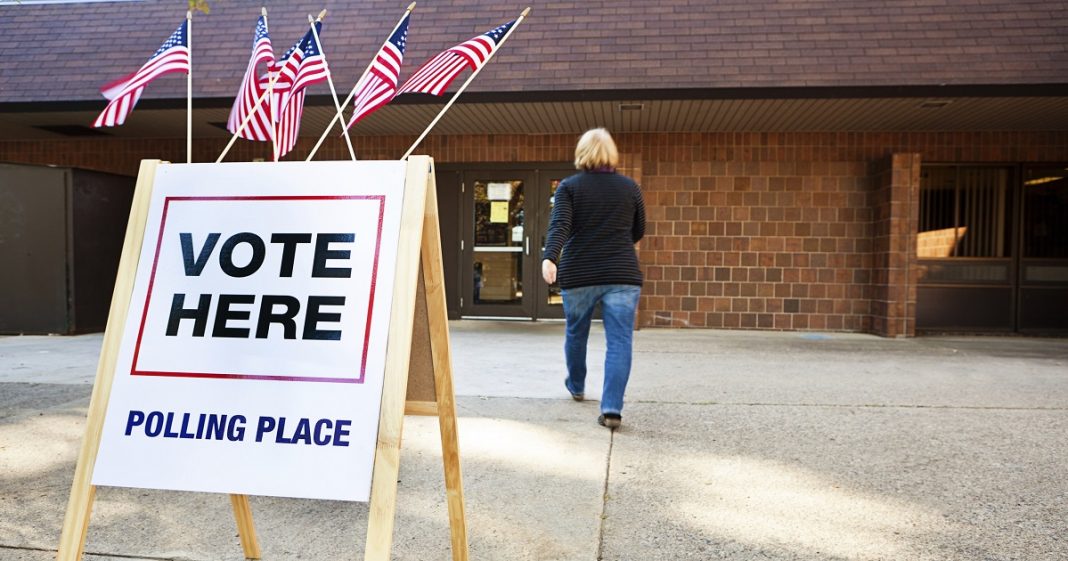According to The Cook Political Report, Thursday’s passage of the American Health Care Act by the House of Representatives made the 2018 midterm elections much more interesting. The site made changes to twenty key congressional races in their Cook Partisan Voting Index, which shows how Republican or Democratic a district may lean.
The report points to the massively unpopular GOP health plan as the impetus for the change in their index. In March, a Quinnipiac poll showed that just 17 percent of American voters approved of the Republican plan. It is also worth noting that, “[o]f the 23 Republicans sitting in districts won by Hillary Clinton in 2016, 14 voted for the repeal and replace measure.” Voting for an unpopular piece of legislation in a district that voted for a Democratic presidential candidate is a substantial political risk.
The report moves three races from “Leaning Republican” to “Toss Ups,” setting up potential 2018 showdowns in California, Colorado, and Minnesota. Colorado’s 6th District race is particularly interesting, as Representative Mike Coffman voted against the AHCA, but “guilt-by-association” and his waffling on the subject could still hurt him.
A further eleven districts saw their rating decrease from “Likely Republican” to “Leaning Republican.” In addition to three districts, two key races in Texas may become more competitive. Rep. Pete Sessions, who represents North Dallas, saw his district go for Hillary Clinton in 2016. Now Colin Allred, a college football star, as well as Ed Meier, a key Clinton supporter, have lined up to run against Sessions. You may remember that Rep. Sessions recently introduced legislation carrying the eye-rolling title: “World’s Greatest Healthcare Plan of 2017.”
Six other races have shifted from “Solid Republican” to “Likely Republican.” While these races are unlikely to see blue candidates win in 2018, there are strong signals that the races will be more competitive than they have been in the past.
In that group, it will be interesting to keep an eye on New Jersey’s 3rd District Representative Tom MacArthur. MacArthur is a former insurance executive that was a key figure in reshaping the Republican bill to gain enough support to pass. He largely ran without substantive competition in his two previous races, using his considerable wealth to fund successful campaigns.
However, The Cook Political Report says that fresh competition could come from “Rhodes Scholar Andy Kim, who served as an ISIS expert in the Obama White House [and] is moving back to Burlington County to run.” On his Crowdpac fundraising page, Kim took MacArthur to task:
“Our country is led by billionaires and millionaires like Tom MacArthur who are out of touch with the struggles that Americans face to pay their bills and provide for their families.”
While Kim is certainly a strong candidate, The Cook Report says that political outsiders may drive Democratic campaigns, like they did for Republicans after the passage of the Affordable Care Act:
“Democrats aren’t so much recruiting candidates as they are overwhelmed by a deluge of eager newcomers, including doctors and veterans in traditionally red seats who have no political record for the GOP to attack – almost a mirror image of 2010.”
Though, Democrats should hold off on celebrating with “Na Na Hey Hey Kiss Him Good Bye,” like their elected officials did on the House floor Thursday. Eighteen months is a political eternity. It appears that the Republican strategy is to take up their most unpopular legislative actions early, with the hope that they can distance themselves from criticism by the time voters head to the polls. But, The Cook Political Report warns that if the bill finds itself heavily challenged in the Senate, time may no longer be on the GOP’s side:
“These Republicans can’t afford a year-long Senate slog.”
The report also goes on to offer an interesting piece of advice to Democrats that are looking to capitalize off of the GOP’s political gamble:
“The irony is that Democrats’ temptation to refer to the GOP’s bill ‘Trumpcare’ may actually raise the popularity of the legislation. Trump’s job approval, though low, is still almost double the public support for repealing and replacing some of the ACA’s most popular provisions. And Democrats will need to go beyond lecturing voters about the bill’s ‘morally bankruptcy’ – their candidates will need to convince independent voters how hard the bill could hit their pocketbooks.”
For the Democratic party, which is still reeling from the November 2016 elections, the Republicans have gift-wrapped a political power-up. The American Health Care Act is incredibly unpopular and the 217 House Republicans that voted for it will face certain political repercussions. The Democrats have the perfect opportunity to gain the favor of millions of Americans that will be hurt by the Republican plan. Let’s just hope they move on from attacking Comey and instead focus on defeating the GOP.




![Senator Schumer: “Single Payer [Health Care] is On The Table”](https://sandbox.trofire.com/wp-content/uploads/2017/07/Universal-Healthcare-218x150.jpg)